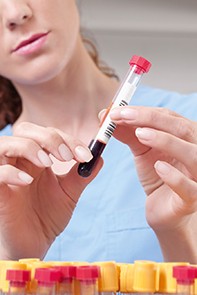Peer Reviewed
Men's health
What’s new in prostate cancer testing?
Abstract
Prostate-specific antigen (PSA) testing can be an effective tool to detect prostate cancer if the appropriate men are targeted. However, over-detection and over-treatment of men with prostate cancer can be a consequence of widespread testing.
Key Points
Interest in the use of prostate specific antigen (PSA) as a screening tool for prostate cancer began in 1993 when it was introduced as a free test to the population of Tyrol in Austria. Intuitively it was thought that the earlier cancer was detected, the greater the chance for cure. This trial demonstrated a 25% improved prostate cancer survival rate in those undergoing PSA screening with prolonged follow up compared with the rate in the general male population in Austria. However, randomised controlled studies comparing death rates of men who have had PSA tests with those who had not have only recently been published.
Purchase the PDF version of this article
Already a subscriber? Login here.

